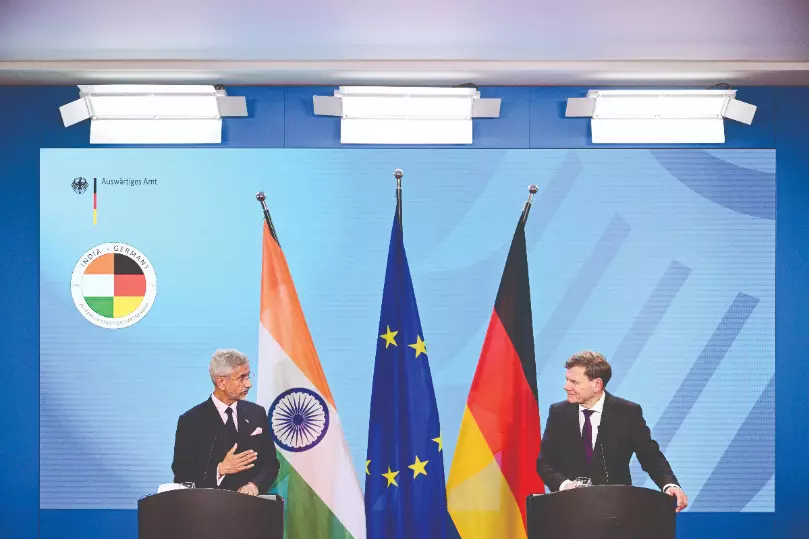‘Won’t yield to nuclear threats’, says Jaishankar as Germany backs India’s ‘right to self-defence’

Berlin/New Delhi: External Affairs Minister S Jaishankar, currently on a three-nation tour of Europe, reaffirmed India’s uncompromising stance on terrorism and declared that New Delhi would not succumb to nuclear intimidation. His statement came during a joint press conference in Berlin on Friday with German Minister of State for Foreign Affairs, Johann Wadephul, following bilateral talks.
Addressing the press, Jaishankar referred to the April 22 Pahalgam terror attack, which claimed 26 lives, and India’s subsequent military response under Operation Sindoor. “I came to Berlin in the immediate aftermath of India responding to the Pahalgam terror attack,” he said. “India has zero-tolerance for terrorism. India will never give in to nuclear blackmail.”
The minister made clear that India’s position on Pakistan remains unchanged. “India will deal with Pakistan purely bilaterally. There should be no confusion in any quarter in that regard,” he asserted.
Sources present at the meeting said that Wadephul, while delivering his statement in German, denounced the Pahalgam attack and acknowledged India’s right to act in self-defence. He also supported the idea of a bilateral resolution between India and Pakistan, a position aligned with New Delhi’s stated approach. Speaking on broader bilateral ties, Jaishankar noted the strength and depth of the relationship between India and Germany, marking 25 years of their Strategic Partnership. “In recent years, our cooperation has acquired many more facets, gained much stronger momentum,” he said.
Wadephul echoed the sentiment, describing the partnership as increasingly diverse and expressing a desire to further deepen ties. Jaishankar also mentioned his meeting earlier in the day with German Chancellor Friedrich Merz. “I noted his strong commitment to elevating and expanding the strategic partnership,” he said. The discussions between the two leaders spanned a wide array of topics. “Our talks addressed different dimensions of our bilateral cooperation. They ranged from trade to technology and investment, to defence, security, energy, sustainability, mobility of talent and societal exchanges,” Jaishankar said. The ministers also exchanged views on regional and global developments. “Germany for us is a really important partner,” Jaishankar stated. “We cooperate in forums like the G4 and the G20.”
Amid global uncertainty and technological disruptions, including those posed by artificial intelligence, Jaishankar underlined the importance of stable partnerships. “Germany for India is our largest economic partner in the European Union,” he said, pointing to ongoing efforts to finalise the EU-India free trade agreement.
He noted Germany’s active role in furthering India’s relations with the EU. “Germany has been one of the most consistent and powerful supporters of rapidly concluding a free trade agreement,” he said. The agreement is expected to be finalised this year, following joint directions from Prime Minister Narendra Modi and European Commission President Ursula von der Leyen in February. German Ambassador to India Philipp Ackermann had earlier remarked that the timing was ripe for progressing the deal.with agency inputs



